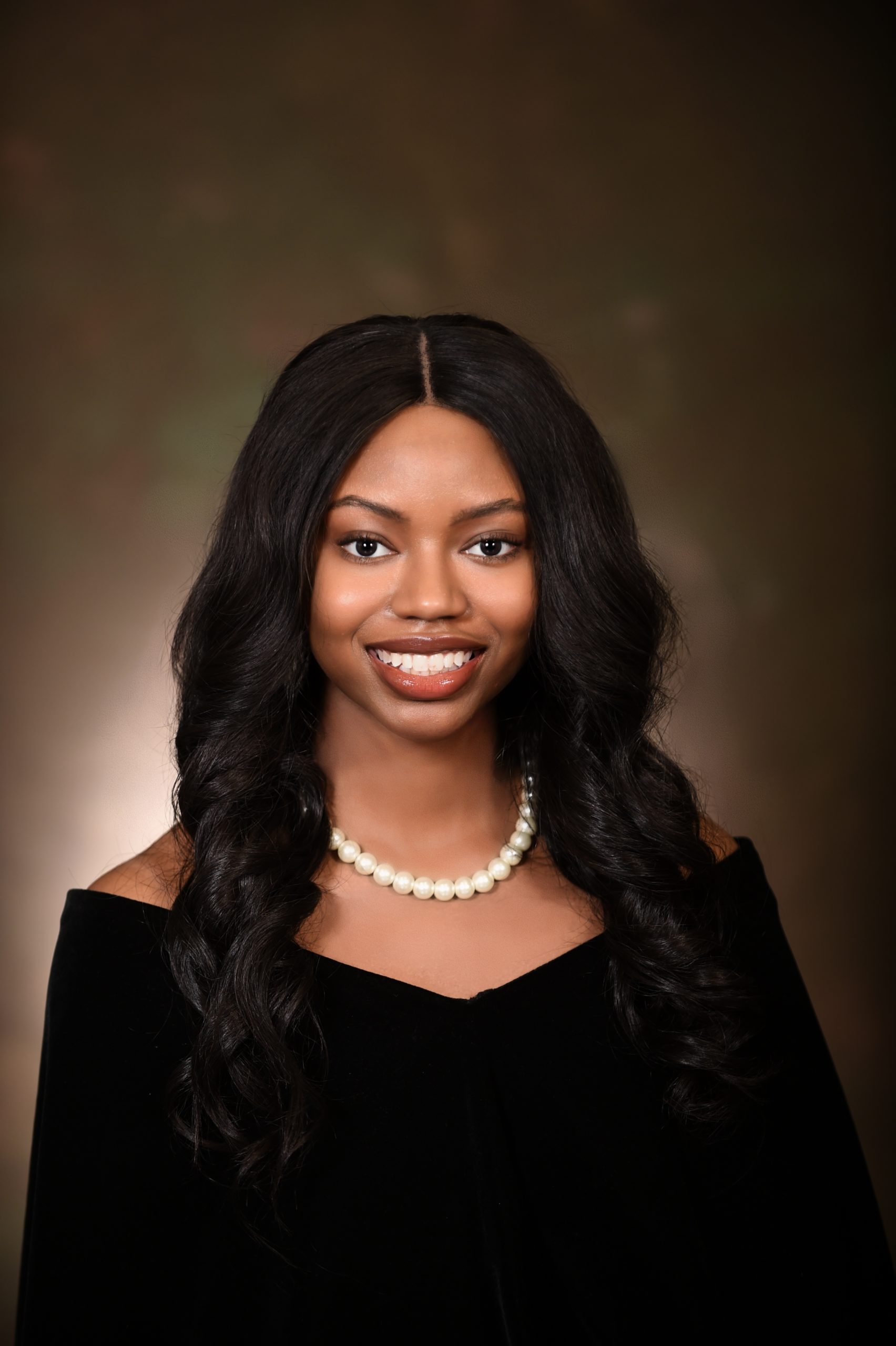
Wishes for the future: How would you imagine your environment needing to be for you to feel that you don’t have to do DEI work anymore?
I imagine an environment where I don’t have to volunteer to speak up about DEI issues. Although I didn’t mind volunteering to give the presentation I wrote about previously, it would be nice if there comes a day when I can trust someone who does not look like me to properly convey that message. It’s not that there aren’t people who are capable of doing so already, it is a matter of being able to trust others to advocate for marginalized communities as much as we advocate for ourselves.
Tamia Middleton
5th Year Undergraduate Student, Chemical Engineering
College of Engineering
Being your best DEI self: Think of a time when you were at your best at advancing diversity, equity, and inclusion. What happened? Who was there? Why did you feel at your best?
I believe a time when I was at my best at advancing DEI was when I contributed to NSBE’s 2025 strategic plan. As National Programs Chair, I solicited feedback from membership, leadership, and partners to develop long-term strategies to help NSBE reach the goal of graduating 10,000 black engineers annually by 2025. I consider this to be my greatest DEI contribution because NSBE is one of the largest student led organizations, and these initiatives will impact generations to come. The closer we come to achieving this goal, the more likely we are to increase the number of black engineers in the U.S. Strengthening the pipeline from pre-college to professional will significantly increase our representation in industry and academia. To read more about specific programs I created, check out pages 14-26 of Game Change 2025 HERE.
Another time that comes to mind is summer 2020 which was pivotal for black Americans everywhere. During my internship at ExxonMobil, I volunteered to do a DEI presentation entitled “Addressing Systems with Allyship”. This was a pretty bold move for an intern, but as the only African American on the floor, I decided that I’d rather the message come from me than someone else. I began by presenting to our department to an audience of about 50. As more people got wind of the presentation, I was asked to do it two more times with the last presentation being made to upper management. I believe it is the most powerful and heartfelt presentation I’ve given to date. Many of my coworkers from new hires to senior management sent Skype messages and emails stating how much they’ve learned and acknowledging how much more they have to do.
What does it mean to you to be a recipient of the MLK Spirit Awards?
To be a recipient of the MLK Spirit Awards at U of M means that I’ve made my ancestors proud. It means that my grandfather, who was unable to matriculate past the 8th grade due to racism and oppression, and my grandmother, who was a janitor at Wesleyan College for 30 years despite not being able to go to college herself, paved a way for me to advocate for others through their own sacrifices. As a native of Macon, GA, MLKs spirit is embedded in our culture. I believe a spirit award is confirmation of that.
